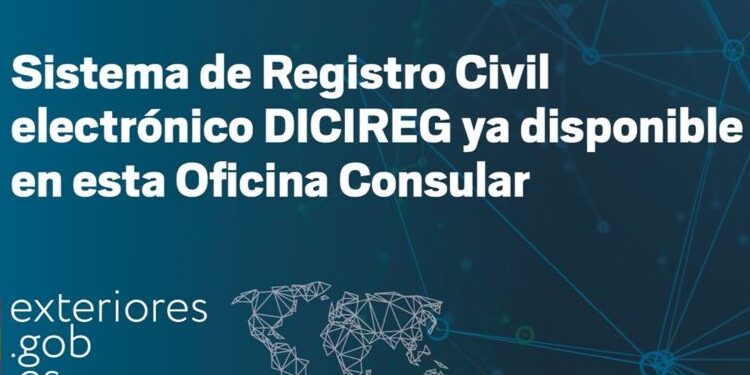Eduardo González
The Ministry of Foreign Affairs plans to complete the rollout of DICIREG, the electronic platform adapted to the new Civil Registry model, in all Spanish representations abroad by July.
According to the Ministry in a press release, the system has already been implemented in 117 consular offices serving more than 2.4 million Spaniards residing abroad. The rollout began in July 2024 in the offices in Helsinki, Manchester, and Amman. By the end of that same year, 35 consular offices in Western Europe and Morocco already had the DICIREG platform.
This deployment coincides with the Consular Digitalization Plan of the Ministry of Foreign Affairs, European Union and Cooperation, which will be implemented throughout 2025. The implementation of DICIREG abroad is being carried out progressively in close coordination with the Ministry of the Presidency, Justice and Parliamentary Relations and is occurring in parallel with its deployment in Spain.
On December 23, the Ministry of Foreign Affairs reported in a press release that the platform had already been deployed in 35 consulates. Since then, the Official State Gazette (BOE) has reported its implementation in another 82 consular offices in countries as significant as the United States, Germany, and China. Therefore, the platform has already been deployed in a quarter of Spain’s more than 440 consulates worldwide.
DICIREG, the digital platform adapted to the new Civil Registry model provided for in the 2011 Civil Registry Law, is a comprehensive application in which both the processing of files and the subsequent registration of events are carried out electronically. It is also based on an individual registry, through which each person is identified by their personal code, which attests to the facts and acts of their civil status, arranged chronologically and systematically.
According to the Ministry of Foreign Affairs, the advantages of implementing DICIREG in Consular Offices are “numerous for Spanish citizens abroad,” as it allows them to obtain any civil registry certificate electronically without having to travel to Consular Offices, which are sometimes far from their place of residence.
Furthermore, by organizing the publication of registry information in digital format, citizens can access the registry online using their electronic identification. All of this promotes immediacy and legal security, since the certificates are transmitted immediately and, as they are issued digitally with a Secure Verification Code (CSV), their authenticity is guaranteed.
“DICIREG, together with the implementation of the Consular Digitalization Plan, will contribute to a new relationship between Spanish citizens abroad and their corresponding Consular Offices, characterized by electronic accessibility and more agile and simplified processing,” the Ministry of Foreign Affairs emphasized last December.







